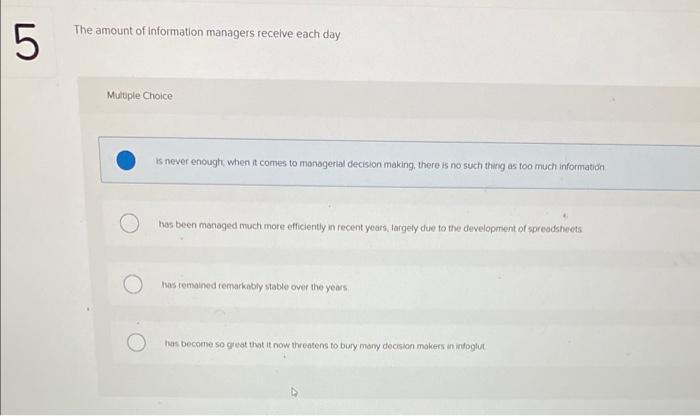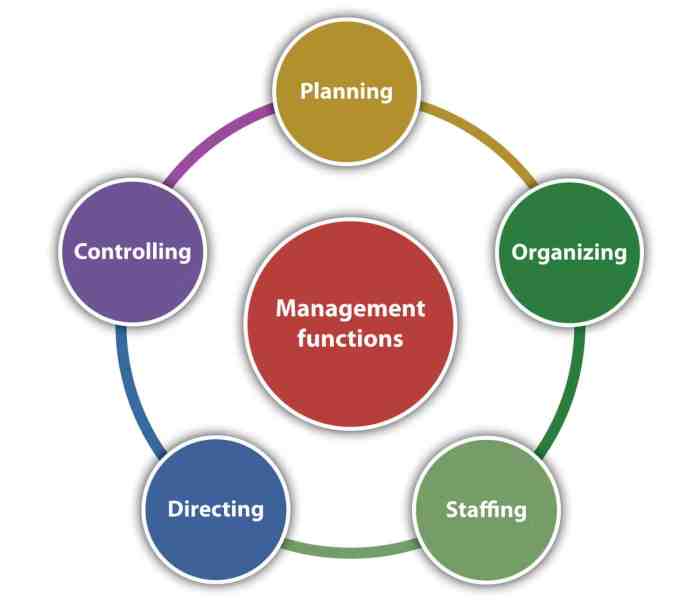The amount of information managers receive each day – In the modern business landscape, managers are confronted with an unprecedented deluge of information that poses significant challenges and opportunities. The sheer volume of data available can be overwhelming, demanding effective strategies for managing information flow and leveraging it for informed decision-making.
This article delves into the multifaceted implications of the information overload managers encounter, exploring its impact on their productivity, decision-making processes, and overall well-being. We will also provide practical guidance on how to navigate this information landscape effectively, empowering managers to harness the power of data while mitigating its potential pitfalls.
1. Data Overload and its Impact

In the digital age, managers are bombarded with an exponential amount of information each day. This information overload poses significant challenges in filtering and prioritizing relevant data. The sheer volume of information can lead to decision fatigue and cognitive biases, hindering managers’ ability to make informed decisions.
Challenges of Information Overload
- Difficulty in filtering and prioritizing relevant information
- Increased risk of decision fatigue and cognitive biases
- Reduced attention span and decreased productivity
2. Strategies for Managing Information Flow

To effectively manage information overload, managers can adopt various strategies:
Best Practices for Organizing Information
- Use a task management system to organize tasks and prioritize incoming information
- Implement a triage system to categorize and prioritize emails and notifications
- Use filters and rules to automate the sorting and management of incoming information
Benefits of Information Management Tools
- Improved organization and efficiency in managing information
- Enhanced collaboration and sharing of information within teams
- Reduced time spent searching for and retrieving information
3. Cognitive Tools for Processing Information
Managers can also employ cognitive techniques to improve their information processing abilities:
Mindfulness and Active Reading
- Practicing mindfulness helps managers stay focused and present when processing information
- Active reading involves actively engaging with the material, questioning, and summarizing to improve comprehension
Critical Thinking and Breaks
- Critical thinking enables managers to analyze and evaluate information, identifying biases and making informed judgments
- Taking breaks throughout the day helps clear the mind and improve cognitive function
4. Leveraging Information for Decision-Making

Effectively managing information overload allows managers to leverage the vast amount of data available for informed decision-making:
Data Analysis and Research
- Analyzing data helps identify patterns, trends, and insights to support decision-making
- Conducting research provides additional context and information to inform decisions
Consultation and Intuition
- Consulting with experts and colleagues offers diverse perspectives and valuable insights
- Intuition, based on experience and expertise, can complement data-driven decision-making
5. The Future of Information Management: The Amount Of Information Managers Receive Each Day

Emerging technologies and trends will continue to shape how managers access and process information:
Artificial Intelligence and Machine Learning, The amount of information managers receive each day
- AI and machine learning can automate information filtering and prioritization
- These technologies can provide personalized recommendations and insights based on user behavior
Big Data and Data Analytics
- Big data analytics enables managers to analyze vast amounts of data to identify hidden patterns and trends
- This information can inform decision-making and drive business strategy
FAQ Compilation
How can managers effectively prioritize the vast amount of information they receive?
Managers can prioritize information by using techniques such as the Eisenhower Matrix, which categorizes tasks based on urgency and importance. Additionally, using technology tools like filters and rules can help automate the prioritization process.
What are the cognitive biases that can arise from information overload?
Information overload can lead to cognitive biases such as confirmation bias, where individuals tend to seek out information that confirms their existing beliefs, and availability bias, where individuals rely too heavily on easily accessible information.
How can managers leverage the information available to them for better decision-making?
Managers can leverage information for better decision-making by using data analysis tools to identify patterns and trends, conducting thorough research to gather diverse perspectives, and consulting with experts and colleagues to gain insights from multiple sources.